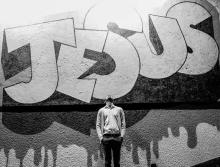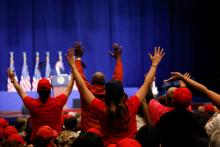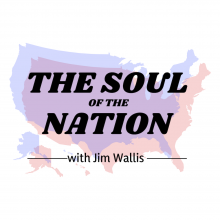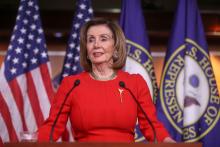Opinion

With the campaign of Donald Trump, the movement I once devoted my life to was swallowed up by a political leviathan. In Trump’s craven pursuit of power, prestige, and the adulation of the crowds, the once poster boy for a lifestyle of pleasure-seeking and self-absorption that required legalized abortion for its own preservation, offered a deal to pro-lifers: Sell out to me and I’ll sell out to you. You’ll get everything you want if you give me everything I want.

I don’t give up on evangelicalism lightly or willingly. Evangelicalism is in my DNA, and I’ll put my credentials as an evangelical up against anyone: evangelical parents, a preacher’s kid, gave my heart to Jesus at age three (and many times thereafter), youth group, Bible camp, graduated from Trinity College and Trinity Evangelical Divinity School. My father was a distinguished pastor in the Evangelical Free Church for 40 years; I honor his ministry and his memory.

Jagmeet Singh is leader of Canada’s New Democratic Party. His campaign to become the country’s next prime minister made international news — in part because of his progressive politics, and in part because of his appearance as a practicing Sikh. In 2019, Singh became the first racial and religious minority to lead a major political party in Canadian history. He remains one of the highest-ranking politicians and most prominent faces in Canada.

There is a type of question I get all the time, most recently during the book tour for Christ in Crisis: Why We Need to Reclaim Jesus. The questions that came from countless pastors and lay leaders in local churches was this: “What can I do as this political and spiritual crisis gets worse and worse? How do we even begin to respond to the enormous needs and stakes of this moment in American history and the future of Christianity in this country?"

The job guarantee was a centerpiece of the civil rights movement’s policy agenda.

Trump does not repent of his actions but persists in them and excuses them, mocking not only God but also his evangelical supporters.

In this very special episode of The Soul of the Nation, the Rev. Jim Wallis sits down with the Rev. Adam Taylor, Sojourners' Executive Director, to discuss the role of the church in politics in celebration of Martin Luther King Jr. Day.

There’s no such thing as an objective critic, or objective criteria by which any of us could judge a movie. The question is whether the critic, or the audience, is able to be honest about the criteria they are using. So I’ll say something I’ve said before: By my sights, the purpose of art is to help us live better, and the best cinema occurs when technical and aesthetic craftsmanship operating at their highest frequencies, and a humane concern for the common good, kiss each other.
Bohnoeffer scholars issue statement of concern, documenting the journey of fleeing Venezuelans, how to fix democracy with design, and more.

Two years ago, Sojourners magazine released our February 2018 cover story, asking the question, “Is This a Bonhoeffer Moment?” This week, the board of directors of the International Bonhoeffer Society — an organization dedicated to research and scholarship on the life and writings of Dietrich Bonhoeffer — issued an answer from their discernment.

For American Christians, our neighbors include — but aren’t limited to—Immigrants, both undocumented and documented, refugees, the sick, the poor, the oppressed, Iranians, Syrians, Afghanis, Yemeni, and everyone else. These neighbors are Christian and non-Christian alike, American and non-American, and there’s no exceptions based on nationality, race, creed, color, ethnicity, religion, sex, sexual orientation, or gender expression.

All of them returned to the South’s frontline struggle for racial justice.

I realized I minimize the miraculous.

This is what slow death looks like for the families of victims of police brutality.

Denny Burk, a professor at Boyce College, expressed an old strategy of Christian colleges to defend 'orthodoxy.'

Rabia Chaudry is a Pakistani-American attorney, author, and podcast host. I first learned about her while listening to the first season of Serial, a groundbreaking podcast that covered the disturbing case of Adnan Sayed. Since then, Rabia wrote a book about his case called Adnan’s Story. She then started her own highly acclaimed true-crime podcast, Undisclosed, and she is now also co-host of The 45th podcast, which looks at important developments coming out of the White House that merit a second look.

“Here is the world. Beautiful and terrible things will happen. Don't be afraid.” —Frederick Buechner
It’s barely 2020, and we are already reeling, if not personally, collectively. Twitter feeds are full of Iran-related retweets of the president, when just weeks ago we were talking about impeachment.

The church shouldn’t need a hashtag to shame it into taking sexual violence seriously. Abuse survivors shouldn’t have to look to Twitter and Facebook and blogs to find a place to belong, to be believed, and to give voice to their trauma.

In the aftermath of Vietnam, Congress passed the War Powers Act in 1973, over the veto of President Nixon. It stipulates that the president should inform Congress 48 hours after initiating the military in any hostile action, and then limits the president for 60 days in carrying out such actions before Congress declares war or passes a proper authorizing action. It was an attempt to find a compromise between Congress’ power to declare war and a president’s need to take immediate military action in certain situations. Nearly ever president since, Republican and Democrat, has bristled under its provisions. Further, Congress has largely abdicated its responsibilities to enforce the War Powers Act provisions.

Among the many foreign policy experts, former diplomatic and military leaders, intelligence officers, members of Congress and the Senate, editorial writers, and columnists weighed in on Donald Trump’s killing of Iran’s top general, Qasem Soleimani, most noted a complete lack of strategy. But what they miss is that Trump has only ever had one strategy: doing whatever benefits him and his own political and financial self-interests.